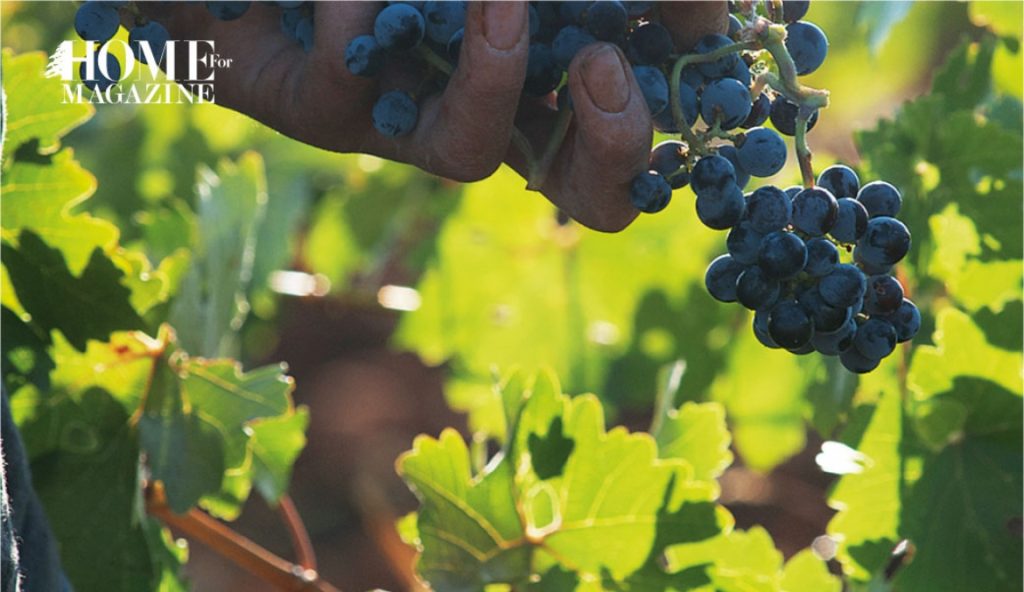Lebanon has been producing wine for thousands of years. Today the industry is thriving but, keeping in mind the rich history, how can Lebanese wines be taken seriously in the global market?
Louis Lahoud and the Agriculture Ministry’s strategy
During the national campaign that the Lebanese Agriculture Ministry launched to support the Lebanese wine, we were reminded that Robert Ballard, professor of oceanography at Rhode Island University, had found wrecks of two Phoenician ships that sank in 750 B.C. that were transporting a cargo of wine from Lebanon.
Today, many years after this discovery, Lebanon produces 8 million bottles of wine per year divided as follows: 68 percent red, 14 percent white, 17 percent rosé and 1 percent sweet wine. During an interview, Louis Lahoud, director general of the Agriculture Ministry, said that the area of vineyards in Lebanon is 3,000 hectares, 62 percent of which is located in the Bekaa Valley, 24 percent in north Lebanon, 11 percent in Mount Lebanon and 3 percent in south Lebanon.
According to Lahoud, the Agriculture Ministry is pursuing the campaign in cooperation and coordination with Lebanese consulates and embassies abroad, whereas they are asked to introduce and promote abroad wine produced in Lebanon during national holidays and Independence Day, especially during public and private ceremonies.
In cooperation with the Lebanese National Institute of Vine and Wine, the ministry is working on improving the Lebanese wine exportation conditions and on reducing its cost. Lahoud also stated that the wine market is in general subject to the supply and demand and is affected by foreign competitiveness. After that Lebanon participated in the Lebanese Wine Day in France and Germany for two consecutive years, New York will host in 2016 Lebanese Wine Day. Lahoud believes that wine producers have raised the profile of Lebanon abroad and that wine could become a sort of Lebanese ambassador all over the world.
“Lebanese wine could become a Lebanese ambassador all over the world.”
Lahoud calls upon a more intensive promotion of the local production while focusing on the continued role of the ministry in this field under the supervision of Agriculture Minister Akram Chehayeb, his own supervision as the director general, and that of the action group in order to support the Lebanese wine production and to transport it abroad in its most beautiful image through various available means.
A master’s degree for future wine investors
The faculty of agriculture at the Holy Spirit University of Kaslik is the first Lebanese university to launch a first of its kind master’s degree in oenology (see web link). This is an important academic initiative in purpose to contribute in helping the wine sector to improve and develop. Dr. Youssef El-Rayes, responsible for this master’s degree, says that “the wine sector in Lebanon is witnessing an interesting boom, thus it needs professional specialists in order to implement and manage vineyards and wineries.”
“It is a two-year master’s degree, with a variety of interesting courses starting from the plantation of grapes, the management of the fields and the winemaking process all the way through to brand marketing. Courses will be given by Lebanese instructors and a number of international specialists will moderate workshops,” he adds. According to Dr. El-Rayes, only six students were accepted for the first edition for this master’s, and this is to guarantee training and job opportunities for each of them.
Students holding a B.S. in biology, agronomy or chemistry are eligible to pursue this master’s program. As for wine lovers and specialist who don’t hold a degree in those fields, they are welcome to attend a number of courses and receive certificates upon completion of each course.
Dr. El Rayes explains that the wine industry in Lebanon lacks of the support of the government who has to offer administrative support and regulation for wine makers. This new initiative will help in finding new places to export Lebanese wine. This is important when you consider that 35 percent to 40 percent of the product is exported, mainly to France and the United Kingdom. El-Rayes, thinks that targeting the Japanese and Chinese markets would be a great opportunity for expansion. He highlights the importance of research in this field. In his opinion, this will help prepare winemakers to target an even more global market. For El-Rayes, wine tours are also a new trend in the Lebanese tourism field that provide a chance for wine makers to promote their products.

































